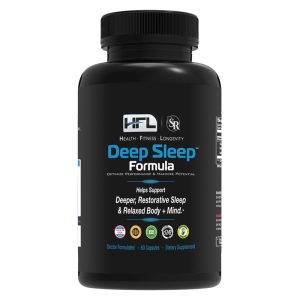Table of Contents
ToggleDefinition of Mental Clarity and Its Importance in Daily Life
Mental clarity is an essential component of our cognitive well-being, enabling us to think, reason, and make decisions with precision and focus. It encompasses the ability to maintain sharp attention, process information efficiently, and experience a sense of clear-headedness.
Brain fog, a common experience characterized by difficulty concentrating, forgetfulness, and muddled thinking impair productivity and quality of life.
Consequently, finding ways to enhance mental clarity has become a priority for those seeking improved cognitive performance.
Introduction to Lexapro: A Commonly Prescribed Medication for Mental Health Disorders
Lexapro (escitalopram) is a widely prescribed selective serotonin reuptake inhibitor (SSRI) medication used primarily in the treatment of depression and anxiety disorders. As an SSRI, Lexapro works by increasing the levels of serotonin in the brain.
This neurotransmitter plays a crucial role in regulating mood and emotions.
With its effectiveness in alleviating depressive symptoms, reducing anxiety levels, and improving overall well-being, Lexapro has gained significant popularity among healthcare professionals as a first-line treatment option for various mental health conditions.
Exploring the Relationship Between Lexapro and Mental Clarity
Lexapro aims to alleviate depression, anxiety, and their associated cognitive impairments. Understanding the medication’s direct impact on mental clarity is crucial.
By examining scientific literature and anecdotal evidence, we can gain insights into how Lexapro affects cognitive function. This exploration will shed light on the extent to which mental clarity may be influenced by Lexapro use, helping individuals navigate their treatment journey while prioritizing cognitive performance.
It is worth noting that exploring alternative interventions like nootropics, which are substances believed to enhance cognitive function, may also be of interest to individuals seeking ways to optimize mental clarity while taking Lexapro.
Understanding Lexapro
A Beacon of Hope: The Brief History and Development of Lexapro as an Antidepressant
In the realm of mental health treatment, the development of effective antidepressants has been paramount in alleviating the burden of depression and anxiety disorders.
Developed by the Danish pharmaceutical company Lundbeck in collaboration with Forest Laboratories, this medication was approved by the U.S. Food and Drug Administration (FDA) in 2002 for the treatment of major depressive disorder (MDD) and generalized anxiety disorder.
Since its introduction, it has provided an invaluable beacon of hope for countless individuals seeking relief from the grip of these debilitating conditions.
Unveiling Neurotransmitter Harmony: How Lexapro Works to Alleviate Symptoms of Depression and Anxiety
The mechanism behind Lexapro’s effectiveness lies in its ability to modulate serotonin levels in the brain. Serotonin is a neurotransmitter often referred to as the “feel-good” chemical due to its role in regulating mood, sleep patterns, appetite, and overall emotional well-being.
In individuals battling depression or anxiety disorders, there is often a disruption in serotonin transmission pathways within their brains.
This disruption can lead to imbalances that contribute to symptoms such as persistent sadness, lack of motivation, anxious thoughts, and restlessness.
By inhibiting serotonin reuptake at specific brain receptors called synapses, Lexapro prolongs the availability of serotonin molecules between nerve cells. This action assists in restoring optimal neurotransmitter balance within key mood-regulating regions such as the prefrontal cortex and limbic system.
A Multitude of Uses: Common Applications and Dosage Guidelines for Lexapro
Lexapro has demonstrated its versatility in treating various mental health conditions beyond MDD and generalized anxiety disorder. Doctors may prescribe Lexapro for social anxiety disorder, panic disorder, obsessive-compulsive disorder, post-traumatic stress disorder, and even premenstrual dysphoric disorder.
The specific dosage of Lexapro prescribed varies depending on the condition being treated, the patient’s age, overall health status, previous response to medication, and other individual factors.
Typically, doctors start patients on a low dosage and gradually increase it over time to achieve optimal therapeutic effects while minimizing potential side effects.
Lexapro’s development as an antidepressant marks a significant milestone in mental health treatment. By targeting serotonin imbalances within the brain, this medication effectively ameliorates symptoms of depression and anxiety-related disorders.
The Impact of Lexapro on Mental Clarity
Potential side effects that may affect cognitive function, including brain fog and memory issues
Some individuals may experience cognitive impairments while taking Lexapro, including symptoms commonly referred to as “brain fog” and difficulties with memory.
Brain fog refers to a state of mental cloudiness or confusion that can hinder concentration and focus.
It may manifest as difficulty in organizing thoughts, remembering information, or making decisions promptly. Memory issues can range from mild forgetfulness to more significant challenges with retaining new information.
Exploring scientific studies on the relationship between Lexapro and mental clarity
Numerous scientific studies have explored the impact of Lexapro on mental clarity and cognitive function.
These studies often employ various assessment tools such as neuropsychological tests to measure cognitive performance in individuals taking Lexapro compared to those on placebo or other antidepressants.
While research findings are still evolving, some studies suggest that Lexapro may lead to modest impairments in certain cognitive domains such as attention, working memory, and processing speed. However, these effects tend to be subtle and not experienced by everyone taking the medication.

Research findings on how Lexapro affects cognitive performance
Studies examining the effects of Lexapro on cognitive performance have yielded mixed results.
Some research indicates that individuals taking Lexapro may experience improvements in certain aspects of cognition such as executive functioning and inhibitory control.
These findings suggest that for some individuals, reducing symptoms of depression or anxiety with Lexapro can enhance overall cognitive functioning. Conversely, other studies have reported slight declines in specific cognitive abilities among those using Lexapro.
It is important to note that these effects are typically mild and vary between individuals. These studies often rely on standardized cognitive tests, which may not fully capture real-world cognitive abilities.
Factors influencing individual experiences with mental clarity while taking Lexapro
Each person’s biology, including their unique brain chemistry and genetic makeup, can play a role in how they respond to the medication.
Lifestyle factors such as sleep quality, stress levels, diet, exercise habits, and overall physical health can also impact an individual’s cognitive function while taking Lexapro.
Other factors such as genetic predisposition, dosage levels, treatment duration, and lifestyle choices like sleep hygiene, and exercise routines can all contribute to an individual’s experience with mental clarity while on Lexapro.
While Lexapro is generally effective in treating depression and anxiety symptoms for many individuals, it may have potential side effects that could impact mental clarity.
Strategies for Finding Balance Amidst Brain Fog while on Lexapro
One effective strategy is to prioritize physical exercise, which has been shown to improve cognitive abilities. Engaging in aerobic activities such as running, swimming, or cycling not only enhances blood flow and oxygen circulation in the brain but also stimulates the release of endorphins, boosting mood and focus.
Living with brain fog can be challenging, but incorporating certain lifestyle modifications can help regain mental clarity while taking Lexapro.
Making conscious choices about daily habits and routines can have a significant impact on cognitive function.
Exercise Routines that Promote Cognitive Function
When creating an exercise routine to enhance mental clarity while on Lexapro, consider incorporating activities that challenge both the body and mind.
Activities like yoga or Tai Chi combine physical movement with mindfulness practices, promoting relaxation and improving concentration. Engaging in activities that require coordination and balance, such as dance or martial arts, can stimulate neuroplasticity by strengthening neural connections.
Dietary Considerations for Optimal Brain Health
Incorporating a well-balanced diet rich in essential nutrients can support cognitive function while taking Lexapro.
Including foods high in antioxidants like berries, leafy greens, and nuts can help combat oxidative stress often associated with mental cloudiness.
Consuming omega-3 fatty acids found in fatty fish such as salmon or nuts like walnuts may boost brain health by reducing inflammation.

Eating Nootropics for Enhanced Cognitive Abilities?
While nootropics are often touted as enhancers of cognitive function, it’s important to consult with a healthcare professional before adding any supplements to your diet while taking Lexapro.
Some natural substances, such as ginkgo biloba or bacopa monnieri, are considered nootropics and have been studied for their potential cognitive benefits.
Due to potential interactions with Lexapro or other medications, it is crucial to seek guidance from a medical expert before incorporating any nootropics into your routine.
Sleep Hygiene Practices to Combat Fatigue and Brain Fog
Establishing good sleep hygiene practices can help combat fatigue and brain fog commonly associated with medication side effects.
Maintaining a consistent sleep schedule by going to bed and waking up at the same time each day can regulate circadian rhythms and improve overall sleep quality.
Creating a peaceful sleeping environment free from distractions, such as removing electronic devices from the bedroom, can also contribute to better rest.
Unwinding with Nighttime Rituals for Better Sleep
Engaging in activities such as reading a book, taking a warm bath, or practicing meditation can help calm the mind and prepare it for restful sleep.
Avoiding caffeine and stimulating activities close to bedtime can aid in falling asleep faster and experiencing more rejuvenating rest throughout the night.
Remember that finding the right strategies may require trial and error, so it is essential to collaborate with healthcare professionals who can provide personalized guidance tailored to individual needs.
Navigating Cognitive Side Effects with Healthcare Professionals
Your prescribing doctor or psychiatrist is the best person to turn to when concerns arise regarding mental clarity.
They possess the knowledge and expertise necessary to guide you through potential adjustments in dosage or timing that can alleviate cognitive side effects.
By describing any specific issues related to mental clarity, such as difficulties concentrating, memory lapses, or brain fog, you enable them to tailor a treatment plan that best suits your needs.
Discussing concerns about mental clarity while taking Lexapro
Initiating a dialogue about concerns related to mental clarity while taking Lexapro requires courage and an understanding that your overall wellness is of utmost importance.
This could include instances where you struggled with decision-making, experienced difficulty focusing at work or school, or encountered memory lapses during important tasks.
Sharing these details will help paint a clearer picture for your healthcare provider, enabling them to make informed decisions regarding potential adjustments.
Collaborating on potential adjustments to medication dosage or timing
Collaboration between patients and healthcare professionals is key when addressing issues of mental clarity while on Lexapro. Your healthcare professional may suggest adjustments to Lexapro dosage or timing to mitigate the cognitive side effects you are experiencing.
They possess the expertise to assess whether a lower dosage or a change in when you take the medication could help alleviate brain fog and enhance mental clarity.
Consideration of nootropics.
While discussing potential adjustments with your healthcare professional, it is important to note that nootropics—substances that are believed to enhance cognitive function—should not be taken without their guidance or approval.
Nootropics may interact with Lexapro or other medications, potentially leading to unforeseen consequences.
Navigating cognitive side effects while taking Lexapro involves open communication with your healthcare professional about concerns related to mental clarity.
Collaboration between patient and prescriber is essential in finding the right balance for optimal mental well-being while taking Lexapro.
The Role of Therapy in Enhancing Mental Clarity while on Medication
Therapy is an invaluable tool for individuals seeking to enhance their mental clarity while taking Lexapro. Various therapeutic modalities, such as cognitive-behavioral therapy (CBT), dialectical behavior therapy (DBT), and mindfulness-based approaches, can effectively complement medication used to promote mental well-being.
CBT, in particular, focuses on identifying and modifying negative thought patterns and behaviors that may hinder mental clarity. This form of therapy empowers patients to recognize unhelpful thinking habits that contribute to brain fog and actively replace them with more rational thoughts.
DBT offers a comprehensive approach by combining individual therapy with group skills training. The emphasis is on cultivating emotional regulation skills, distress tolerance techniques, interpersonal effectiveness, and mindfulness practices.
Mindfulness-based therapies incorporate methods such as meditation, breathing exercises, body scans, and guided imagery to help individuals stay present in the moment without judgment or attachment to thoughts or emotions.
Practicing mindfulness regularly can improve focus and concentration while reducing the impact of brain fog associated with medication use.
Conclusion
Incorporating therapy into one’s treatment plan while taking Lexapro is an excellent strategy for enhancing mental clarity while managing medication-related side effects like brain fog.
Through various therapeutic modalities such as CBT, DBT, and mindfulness-based approaches, along with cognitive-behavioral techniques, individuals can find balance amidst brain fog.
Therapy provides a safe space for individuals to explore their experiences while receiving guidance from skilled professionals who specialize in optimizing cognitive function.
Embracing these therapeutic approaches paves the way for a brighter, clearer future. And remember, there are natural alternatives such as nootropics that may also enhance mental clarity, explore all options with professional guidance.













